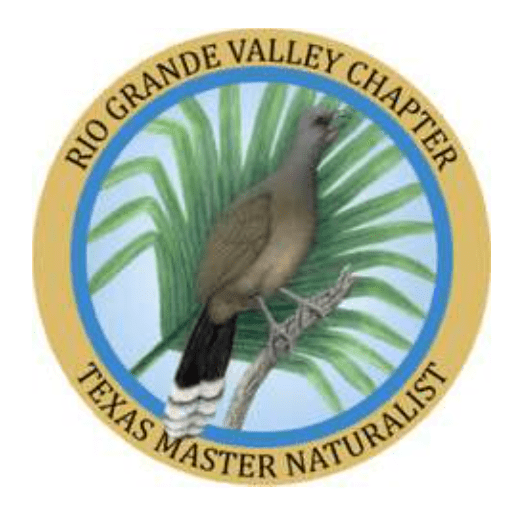The purpose of advanced training is to provide Texas Master Naturalists an opportunity to focus their interests on one, or a few, specific topics that interest them. Also, advanced training on an annual basis promotes continued learning and development. Advanced training is a benefit in itself, providing the experienced Master Naturalist with tools to work in more advanced volunteer efforts.
Advanced training courses may be made available directly through TPWD or any number of short-courses provided by universities or nature centers. Our Chapter Board and Advanced Training Committee must pre-approve all advanced training opportunities. Generally, training sessions or seminars by Chapter members would not qualify, unless that member is a certified or formally trained specialist, and approved by the Advanced Training Committee. Advanced training hours are also counted one hour for each hour of advanced training, however travel time is not included for advanced training hours. These hours are not included in volunteer hours, and do not accumulate towards Milestone hour achievements. Pre-approval must be obtained for an advanced training session that is outside the chapter boundaries. There are many real-time online inter-active webinars on nature that would qualify.
Our Chapter Advanced Training Committee uses the following criteria or ask the following questions of the opportunity when reviewing and approving Advanced Training Opportunities.
Does the Advanced Training opportunity:
- Promote continued learning and development of naturalist skills?
- Provide Master Naturalists with knowledge and skills to work in volunteer efforts?
- Direct trained volunteers toward specific programs in need of their services?
- Provide natural resource management issues and information applicable to Texas with a preferred emphasis on the Chapter’s local community or ecoregion?
- Directly address the management of natural resources?
- Provide practical information and training for application in volunteer efforts?
- Take advantage of local partnerships?
- Provide Master Naturalists an opportunity to focus their interests in one or a few specific topics?
- Build on the core curriculum initially provided by the local Chapter?
- Is the program/training provided by a person who is a recognized authority or skilled in the subject matter?
Advanced Training opportunities must meet the following criteria: 1, 2, 3, and 4. It is suggested that the remaining criteria also be a part of the opportunity.
Approved Advanced Training Opportunities that do not generally require advanced approval by the chapter:
- All Texas Parks and Wildlife TMN State sponsored activities, including their sponsored webinars, classes, field trips, etc.
- Those “Master Naturalist related” topics provided in Cameron County by Texas A&M AgriLife Extension Service or Texas Master Gardeners. An approval form is requested to ensure the training is “related” to our mission, for our documentation purposes as non-chapter training, and to initiate our tracking and logging of hours.
- Other Texas Master Naturalist chapters’ approved Advance Training, for RGVC members who may wish to participate. An approval form is required, that should referenced that chapters approval documentation for our tracking purposes, and to initiate the logging of hours by RGVC Membership Committee. RGVC can not approve Advanced Training projects in another chapter’s jurisdiction, nor vice versa.
- Most sessions on related topics offered by Nature Centers, Universities, other State agencies such as Texas Forestry Service will likely be approved, but not automatically.
- Reading books and providing book reviews are not recordable Volunteer Service hours, but may be AT hours. A Book Club Group could be organized where a group of members all read a particular book on nature, then meet regularly to discuss the books using guided questions and a member facilitator. The members get Advance Training credit for the time IN the group discussion but NOT for reading the book.
If in doubt, or for guidance, send a query to the Advanced Training Director or member of the Advanced Training Committee prior to participation.
Advanced Training opportunities are posted on our Chapter website with notifications sent out via our Chapter’s email list service and Facebook page.
To obtain the form for Advanced Training approval, go to this page.
Additional Chapter Guidelines:
- Watching an educational TV program, movie or video on a naturalist subject does not count as advanced training except when viewed during the course of an approved lecture or training program.
- Advance Training is provided by knowledgeable experts or approved state trainers upon completion and approval of a Volunteer Project / Advanced Training Form. “Knowledgeable experts” can include Certified TMN’rs and would be part of the Advanced Training approval process.
- Meetings do not count as advanced training unless otherwise specified.
- All attendees record hours as Advanced Training. Volunteer hours may be recorded if a member is providing class assistance.
Advanced training may be in any of the following naturalist (or closely related) fields:
- Archeology
- Astronomy
- Botany – as it pertains to native plants
- Climate and Weather
- Conservation and Environmental Issues
- Earth Sciences
- Ecology
- Ecosystems
- Endangered Species
- Geology – as relates to ecosystems
- Geography
- Habitat management and/or restoration
- Hydrology
- Natural History
- Soil – as it pertains to habitat or as a natural resource
- Water – as it pertains to habitat or a natural resource
